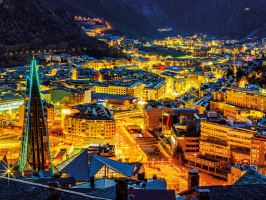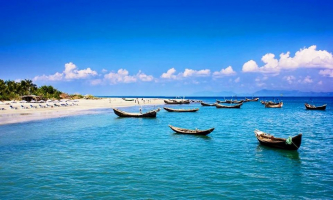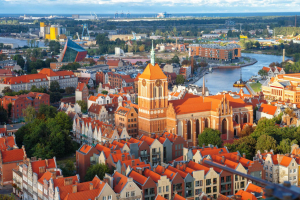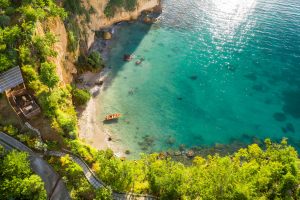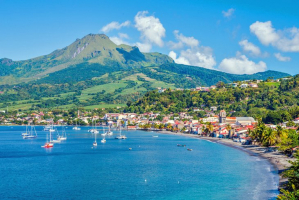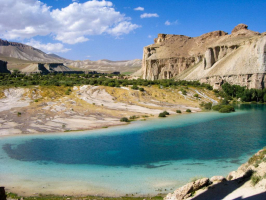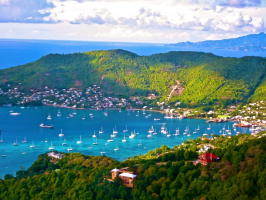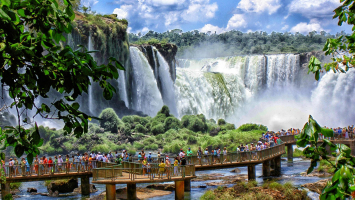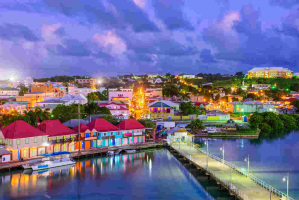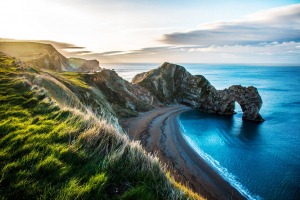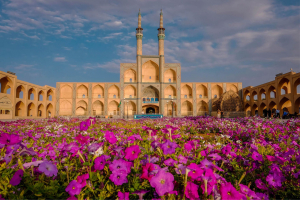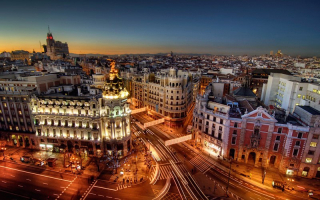Top 8 Best Tourist Destinations In Luxembourg
Luxembourg is a small country, but it is full of most gorgeous places you have ever seen. Some of the best attractions and tourist spots in Luxembourg may be ... read more...found in the city of Luxembourg, which you should visit if you plan a vacation to Luxembourg. There are other tiny communities in the city that are worth seeing. Not only that, but Luxembourg is home to numerous gorgeous castles and strongholds that are well worth exploring. This is one of the primary reasons why the city is so popular with travellers. And if you're asking, 'Is Luxembourg a decent destination to visit?', you'll find your answers in this article's list of gorgeous spots.
-
There's no better spot to start visiting picturesque Luxembourg City – known locally as "d'Stad" – than its historic Old Quarter. The city's ancient defences have ensured its place as one of Europe's most prominent cities, was designated a UNESCO World Heritage Site in 1994. The fortification was so strong that it was dubbed the "Gibraltar of the North," and while the original fortress was demolished between 1867 and 1883, its influence on the Old Quarter can still be seen today.
Today, the medieval fortifications have been replaced by beautifully landscaped parks and gardens, and its cobblestone lanes are lined with fascinating old homes and structures. It's a terrific spot to spend a few hours exploring as you cross its various bridges – including the magnificent Adolphe Bridge, which is regarded as a city icon – and walk its many passageways, preferably without a plan (just follow your nose and see where you wind up!).
Address: 39 Dixon St, Te Aro, Wellington, 6011, New Zealand, Luxembourg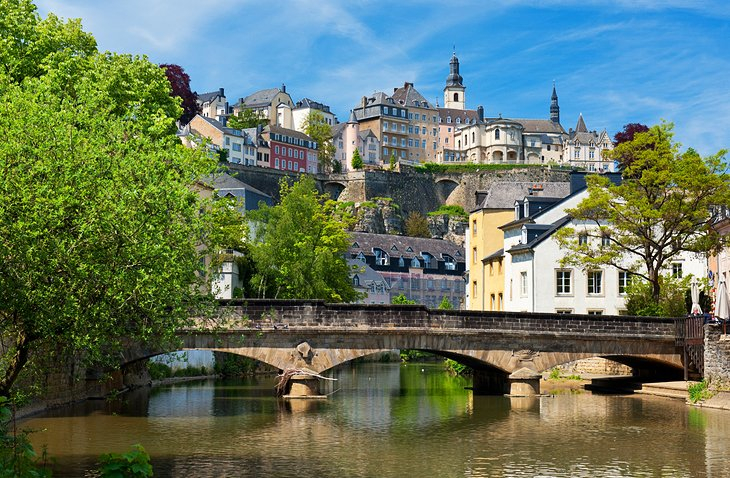
https://www.planetware.com/ 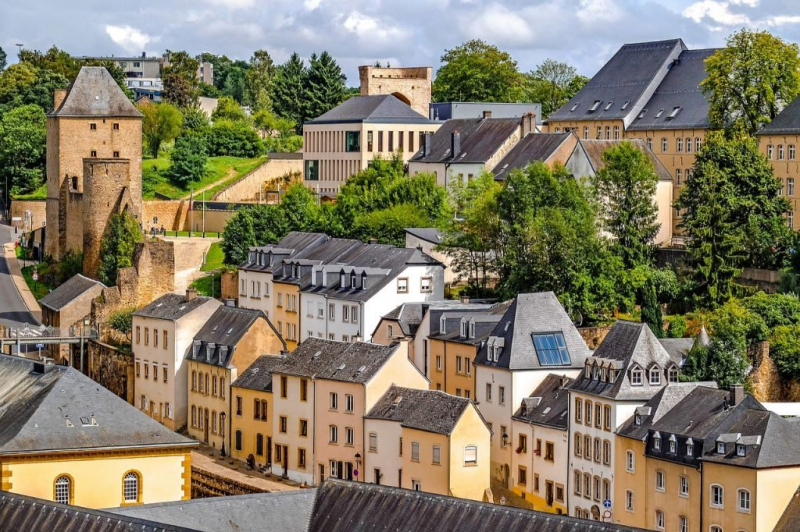
https://197travelstamps.com/ -
If you were to rate Luxembourg City solely on the quality of its museums – regardless of its standing as one of Europe's most historically significant cities – it would still rank exceptionally high on the continent's must-see cities. The National Museum of History and Art (Nationalmusée fir Geschicht a Konscht, or (MNHA) is first on the list.
The is located in the old Fish Market area and is noted for housing countless art artefacts, tools, coins, archaeological finds, furniture, and papers. All of these objects are evidence of the country's flowing history. The museum focuses on the Gallo-Roman period, with a multitude of artistic, religious, social, and intellectual artefacts from the 16th to the early 20th centuries in the show.
The modern art department, which includes works by many of the twentieth century's most important artists, is also a must-see. Art lovers should also pay a visit to Am Tunnel. This contemporary art gallery, housed under, as the name implies, an old tunnel, provides a welcome escape from the city's a lot of larger, busier museums and galleries.
Address: Marché-Aux-Poissons, 2345 Luxembourg City
Official site: www.mnha.lu/en/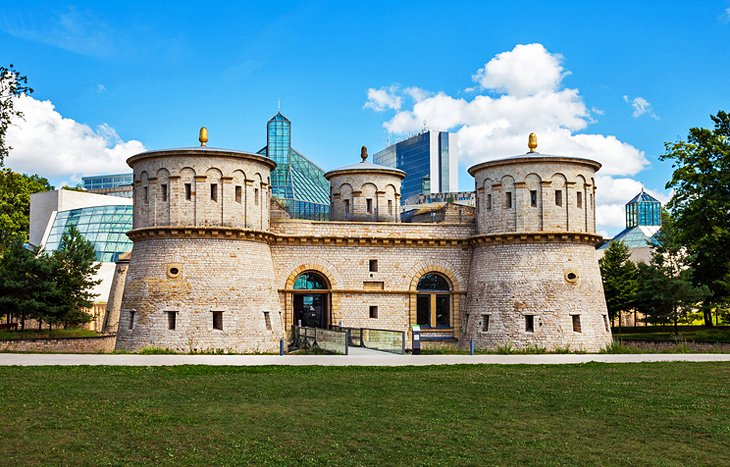
https://www.planetware.com/ 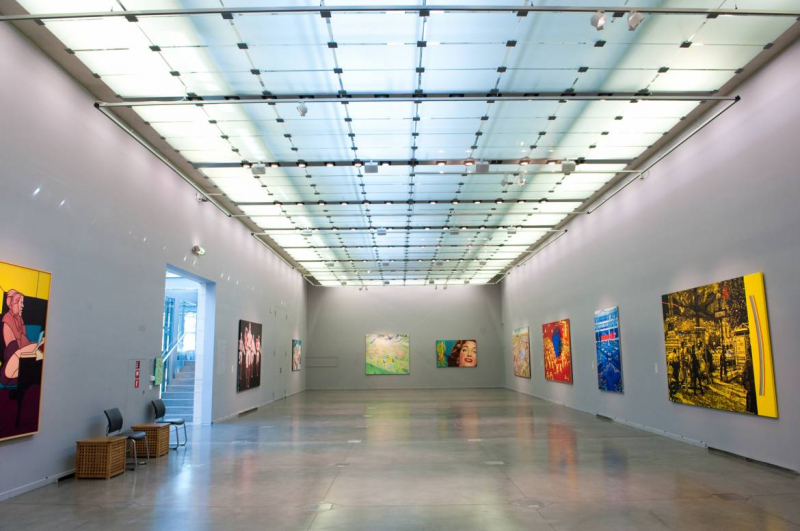
https://www.visitluxembourg.com/ -
The entrance to the famed Casemates (Casements du Bock), a 21-kilometer network of underground corridors hewn from solid rock, may be found atop Luxembourg's Bock cliff (Bockfiels), with its defences and cannon-loopholes. It could hold thousands of defenders, as well as their equipment and horses, and it also had workshops, kitchens, and slaughterhouses.
The Casements occupy an astonishing 40,000 square meters in total, some of which date back to the Spanish occupation in 1644. Much of these amazing defences may now be explored on foot, and scheduled guided tours are available for those interested in learning more about the tunnels' intriguing history.
The remains of the medieval castle, discovered in 1963, may be found on the Bock plateau. Beautiful views of the Grund district and the Rham Plateau, as well as the old 19th-century barracks and the large towers and remnants of the 1390 Wenceslas wall, are available.
Address: 10 Montée de Clausen, 1343 Luxembourg
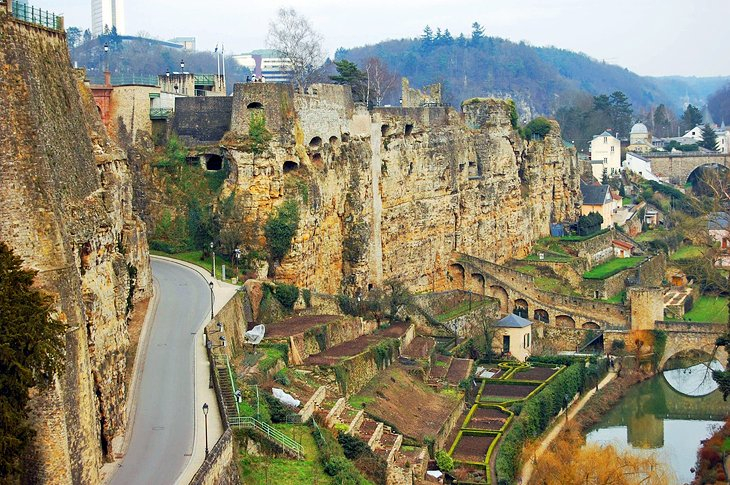
https://www.planetware.com/ 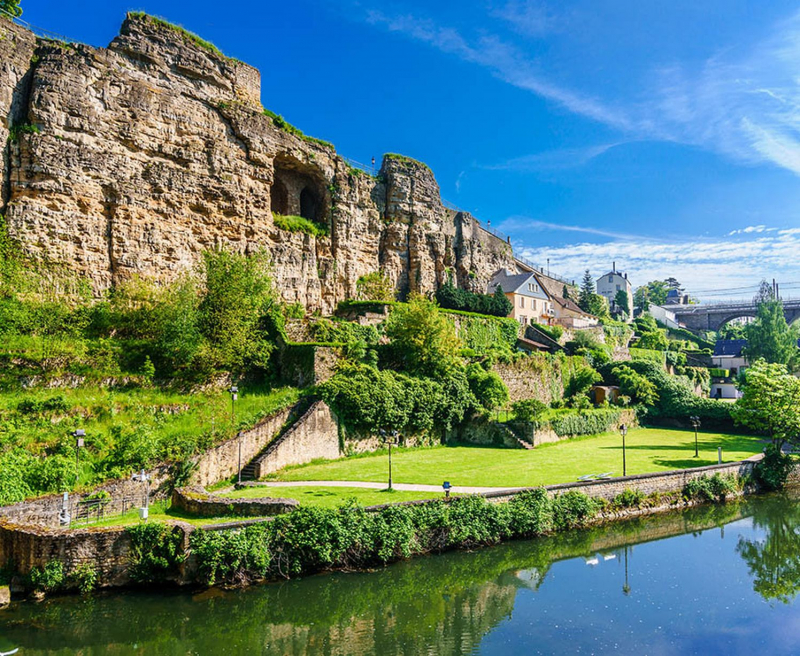
https://www.dailystar.co.uk -
The Grand Ducal Palace (Groussherzogleche Palais) is a must-see landmark in Luxembourg City, which is a stunning Renaissance structure from 1572 that serves as the official house of the country's reigning monarch, Grand Duke Henri. It was established in 1572 as the city's initial municipal hall, a role it held until 1795 before becoming the Grand-Ducal Place in 1890.
While it is still the Duke's primary residence, the public is permitted to take a look inside during specially scheduled tours offered from mid-July to the first week of September, when it becomes one of the city's most popular attractions. There are nine excursions available daily, all of which are conducted in a number of languages, including English. Tickets are available at the Luxembourg City Tourist Office, which is located on Place Guillaume II.
The tour includes a chance to explore the sumptuous, finely furnished interior, as well as the ceremonial halls used for important events such as visits by foreign dignitaries.
Address: 17 Rue du marché-aux-Herbes, 1728 Luxembourg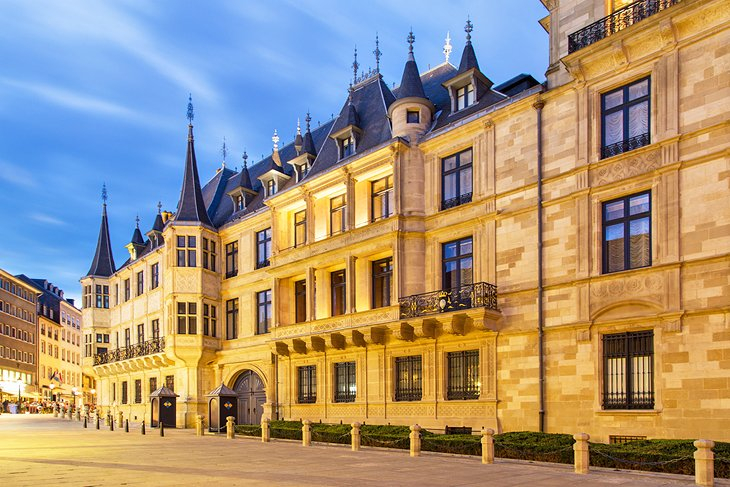
https://www.planetware.com/ 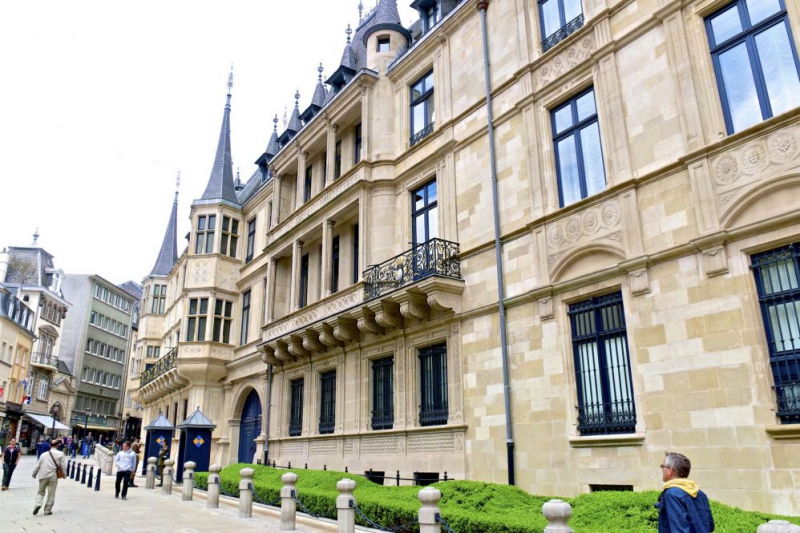
https://www.visitluxembourg.com/ -
Luxembourg City's magnificent Walls of the Corniche (Chemin de la Corniche) have been dubbed "the most beautiful balcony in Europe," towering over the old city in the river valley below. The large Gate of the Grund, which dates from 1632, is located here. This place is home to numerous aristocratic refuges and houses, as well as an ancient Dominican convent and St. Michael's church (AD 987).
The church and the medieval Abbey of Neumünster, noted for its 17th-century Limoges cloister, an organ dating from 1720, and a 14th-century "black virgin," are located in the Grund area. The adjacent structures are part of the old Hospice St.-Jean, which was constructed in 1309 by Emperor Henri VII, Count of Luxembourg.
Address: Chemin de la Corniche, 1945 Luxembourg City
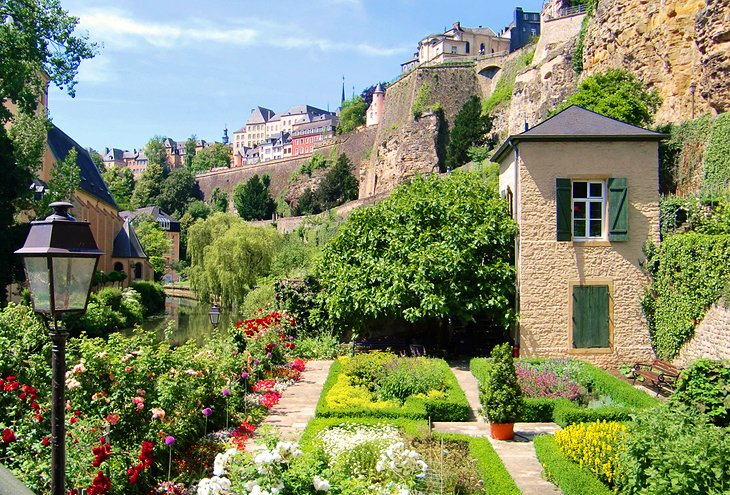
https://www.planetware.com/ 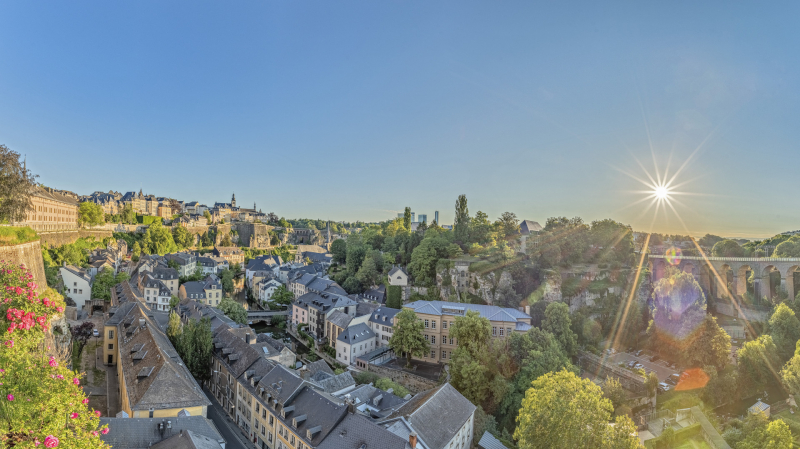
https://www.luxembourg-city.com/ -
One of the city's largest open spaces, Place Guillaume II in Luxembourg was the former location of a Franciscan convent that has subsequently been turned into a pedestrian zone. The equestrian statue of William II, King of the Netherlands and Grand Duke of Luxembourg, stands in the center. It's also home to the gorgeous Town Hall and the famed Trémont's lions, as well as the city's popular weekly market, which is known for its flowers and plants, as well as local produce.
Nearby, the 16th-century House of Raville, with its lovely façade is a well-restored balcony and spiral staircase. The Spanish Turret, with its spectacular views of the Pfaffenthal suburb, and the old cavalry-barracks of Vauban, dominated by Fort Thüngen, popularly known as the "Three Acorns" for the three acorns that adorn each of its three towers, are additional famous monuments. Also, take your time visiting this stunning region. It's a lovely place to stop for a meal or a drink at one of the many excellent cafés and eateries.
Address: 23 Rue du Fossé, 1536 Luxembourg City
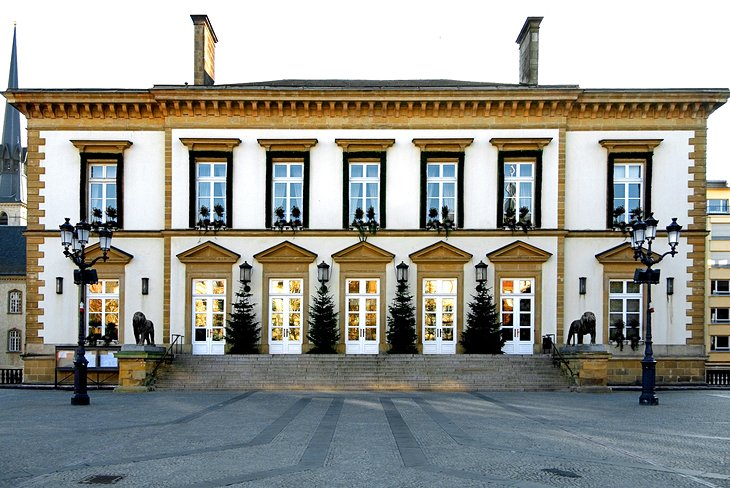
https://www.planetware.com/ 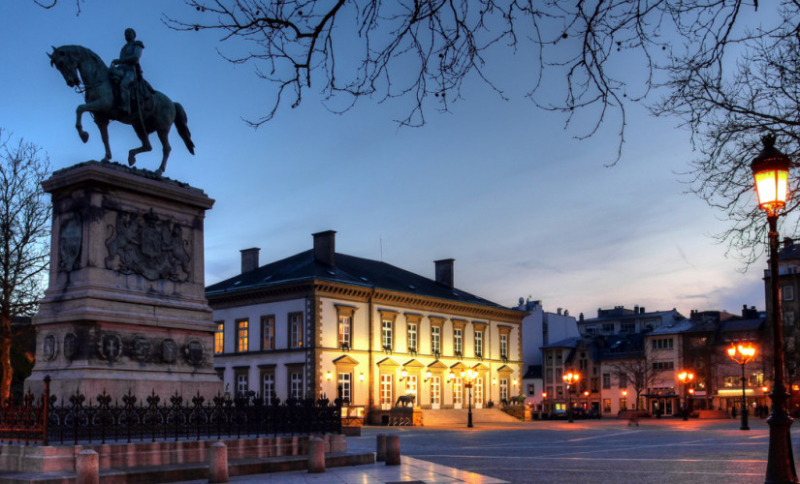
https://www.luxembourg-city.com/ -
Fans of modern art (and ultramodern architecture) should pay a visit to the magnificent Grand Duke Jean Museum of Modern Art (Musée d'art moderne Grand-Duc Jean, or MUDAM), which houses world-renowned artists' contemporary art collections.
The Grand Duke Jean Museum of Modern Art has received consistently positive feedback for its contemporary collection, which includes works by well-known artists such as Bruce Nauman, Andy Warhol, and Julian Schnabel, to mention a few.
The museum has various visiting and temporary exhibits in addition to its many great permanent artworks on display. A wide range of excellent educational events and workshops, including some aimed exclusively at children, are also accessible to the general public. There are also English-guided tours available.
Address: 3 Park Drai Eechelen, 1499 Luxembourg City
Official site: www.mudam.lu/en/home/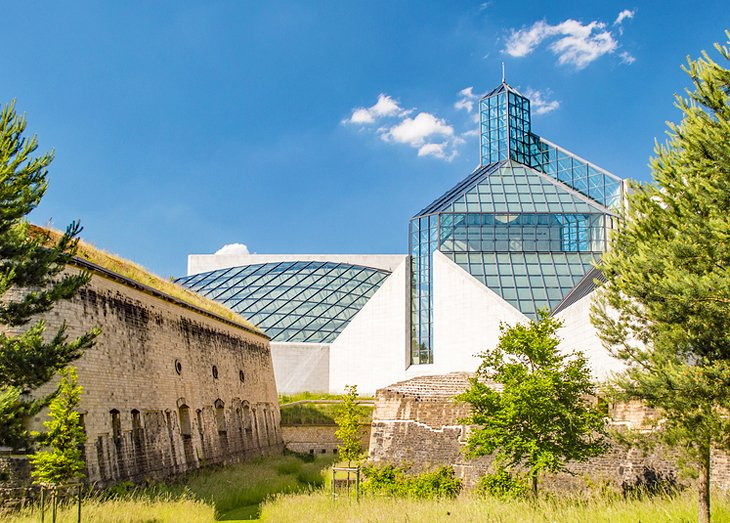
https://www.planetware.com/ 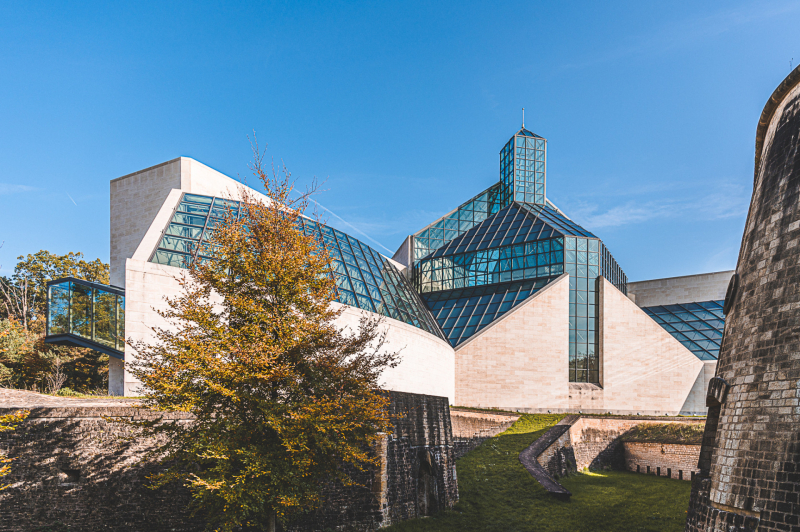
https://www.luxembourg-city.com/ -
Echternach is a lovely town on the banks of the River Sûre, which forms the border with Germany. Nearby that it is the Mullerthal and Germano-Luxembourg natural parks, and the surrounding woods are crisscrossed with hundreds of walks leading to impressive rock formations, waterfalls, a lake, and several lovely overlooks.
The town is famous for its centuries-old dancing parade, which takes place on Whit Tuesday and draws visitors from all over the world. Echternach's medieval aspect has been preserved thanks to its old aristocratic buildings, small alleyways, and ancient ramparts.
The seventh-century Benedictine Abbey and its excellent museum, situated around a vast square courtyard, are must-go places in Luxembourg. The basilica, the country's most prominent religious structure, houses a crypt with a magnificent white marble sarcophagus containing the bones of St. Willibrord, the abbey's founder, and its vaults are adorned with frescoes dating back to the 10th century.
Echternach is also well-known for its international music festival, which takes place in late May and early June. The town also has excellent cuisine at its many restaurants, as well as a plethora of boutique stores and galleries, a selection of top-rated hotels, and camping.
Address: 6586 Echternach, Luxembourg
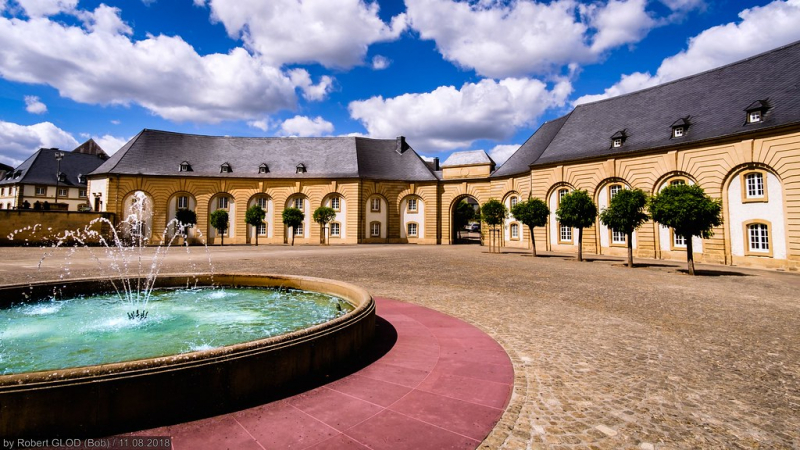
https://www.flickr.com/ 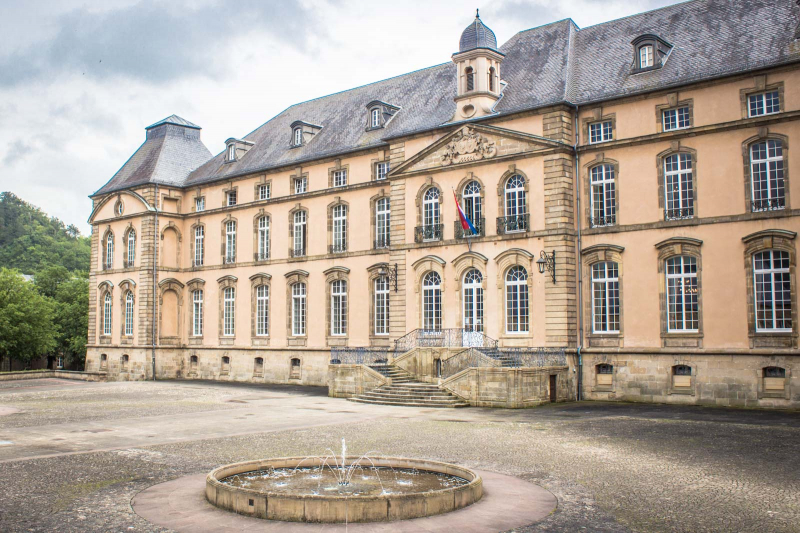
https://www.timetravelturtle.com/












